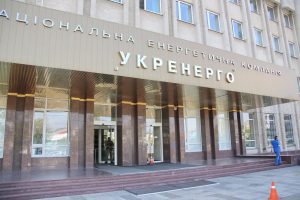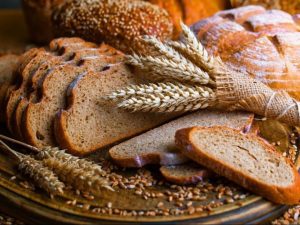
Kyiv Sikorsky International Airport has asked the president of Ukraine, the prime minister, the Minister of Infrastructure and the mayor of Kyiv to take a number of measures aimed at providing assistance for its maintenance in connection with quarantine. The corresponding appeal of Kyiv International Airport and Master Avia LLC was posted on the airport’s website.
The authorities, in particular, are asked to provide financial assistance in the amount of UAH 22 million per month for the payment of salaries to employees and to maintain the airfield and the airport in working condition for the period when it stopped working and quarantine is over until a passenger flow reaches 20,000 passengers per month for departure.
It also asks to remove restrictions for Kyiv Airport in terms of performing flights during the suspension of flights, because, as the company explains, at present, preferences for the operation of transport, business aviation and evacuation flights are provided exclusively to Boryspil airport.
They also ask to allocate a targeted subsidy of $15 per passenger to provide discounts to airlines for a period of 1.5-2 years for the resumption of passenger traffic, provide assistance in refinancing a loan in the amount of $28 million at a minimum interest rate and with a long-term maturity, provide land tax benefits for Master Avia LLC and Kyiv International Airport, create a commission to support the aviation industry with the participation of representatives of Master Avia LLC and Kyiv International Airport.

NEC Ukrenergo is working on a project to create its own research and development (R&D) office and expects to present its own vision of the office’s activities and tasks by the end of 2020.
“Ukrenergo has a consultation project with RTE International, and one of the cases of this project is to support us in creating R&D office of Ukrenergo. Now we are working on writing a roadmap, developing a structure, creating human resources, and formulating office’s tasks. I think that we will be able to present some specific developments by the end of the year,” Head of Strategic Planning and Analysis Division of NEC Ukrenergo Natalia Slobodian said during an online meeting at Energy Club on Thursday, April 30.
She said that R&D office will focus on solving the main problems in the energy system, optimizing the work taking into account changes in the economy, and quickly responding to challenges like those created now due to the coronavirus disease (COVID-19) pandemic.
“Ukrenergo has rather ambitious plans to follow national and global trends in creating leading and innovational products,” Slobodian said.
In her opinion, the benefits of state-owned companies from the creation of R&D offices are obvious, as concern for innovation increases the financial and investment attractiveness of enterprises, allows them to create highly intelligent jobs, and also makes the enterprises attractive to young professionals.
She also said that there is an opportunity to involve grant support for the work of such offices, and additional financial resources are not required for the commercialization of the products they create.
“There is no need to spend money on the commercialization of all the products that R&D offices make. They immediately test the products in market conditions and at once bring them to the market, creating demand in this way,” Slobodian said.
Ultimately, in her opinion, all efforts to introduce innovative technologies are aimed at improving the quality of customer service and providing them with additional opportunities. “The beneficial owner is a consumer by 100%. He gets a stable energy supply, cheap electricity and the opportunity to get market benefits via innovation,” Slobodian said.

It will become possible to resume treatment of Ukrainians abroad as soon as non-emergency care clinics open. All patients receive healthcare services at specialized clinics in Ukraine, Deputy Health Minister of Ukraine Iryna Mykychak told a press briefing in Kyiv on Thursday.
“There are patients who require medical services that are not available in Ukraine. This is, first of all, bone marrow transplant. The national budget provides for funds for treatment of such patients in foreign clinics. A standing commission, which makes decisions on referrals to treatment, is working. Currently foreign clinics are closed for non-emergency patients. As soon as they open, patients will be able to receive aid. Today they receive healthcare services at specialized clinics in Ukraine,” she said.

Ukraine since the beginning of the 2019/2020 marketing year (MY, July-June) has reduced production of bread and bakery goods by 12.3%, and in March this year compared to March 2019 by 13.8%, the UkrAgroConsult analytical agency said on its website.
According to the agency, production of flour since the beginning of the current MY has decreased by 3.1%, and in March this year from March of the past year by 8.8%.
UkrAgroConsult noted that in March production of bran also decreased by 8.3%, and feed by 6.1%.

The National Bank of Ukraine (NBU) in April 2020 bought $723.3 million, while sold $44.5 million in the interbank foreign exchange market, while in March it spent $2.2 billion on supporting the hryvnia. According to the NBU, in the period from April 27 to April 30, the regulator bought $115.5 million at a single rate in the interbank market, which is four times more than a week earlier. This week, the central bank was only buying currency.
Most of all, in March the National Bank bought in the interbank market from April 6 to April 10 ($327.7 million), and only that week it sold foreign currency ($44.5 million).
In general, since the beginning of the year, the central bank bought $2.069 billion for reserves and sold $2.793 billion.
This week, the national currency rate in the interbank market strengthened and reached UAH 26.945/$1 on Wednesday, after which it slightly weakened on Thursday to UAH 26.955/$1. Starting from April 2, the hryvnia exchange rate did not fall below the level of UAH 27.5/$1, stabilizing after a rapid fall in March.